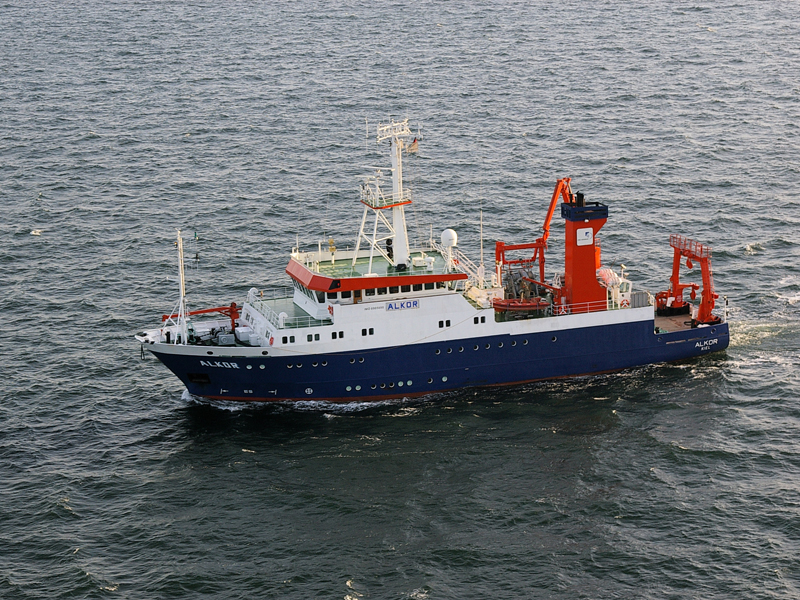ALKOR AL576
- Area:
- Norway
- Time:
-
16.07.2022 - 25.07.2022
- Institution:
- GEOMAR
- Chief scientist:
- Ulf Riebesell
In the Paris Agreement 197 signatory states agreed to keep global warming well below 2°C to avoid dangerous climate change. This goal can only be achieved with rapid decarbonization ideally initiated by 2020. The political decisions since the Paris Agreement, however, are in conflict with this imperative and keep us on a path towards 3°C or more. Our inability to act today will very likely force us to compensate past and present emission excesses with negative emissions technologies (NETs) which will have to start removing gigantic amounts of CO2 from the atmosphere in the 2030s.
Enhanced Weathering (EW) and Ocean Alkalinity Enhancement (OAE) are within the inner circle of currently considered NETs as they have a high capacity and are cost-effective. The idea is to accelerate CO2consumption through natural rock weathering by spreading gigatons of pulverized rocks over land (EW) or sea (OAE). As a consequence, massive amounts of dissolution products would end up in the oceans and perturb chemical conditions. Yet, it is unknown if such perturbations could disrupt pelagic ecosystems more than climate change itself.
In the framework of the EU-H2020 project “Ocean Negative Emission Technologies” (OceanNETs) we will assess potential risks and side effects of ocean alkalization for marine pelagic ecosystems and biogeochemical cycles. As part of this, we plan to conduct a large-scale in situ mesocosm experiment in the coastal waters off Norway (representative for temperate zone neritic systems). This study is intended to test the environmental, ecological and biogeochemical impacts of two types of minerals primarily considered for ocean alkalization, silicate and carbonate containing minerals (in this case olivine and quicklime). The experiment is planned to be conducted during the productive spring season, at a time when both diatoms and coccolithophores co-occur and are prone to bloom formation.



